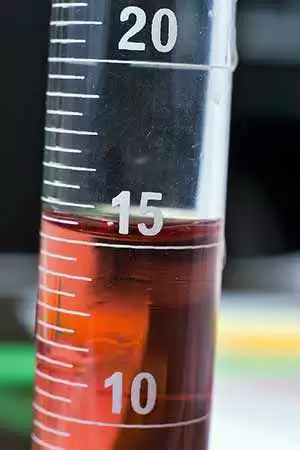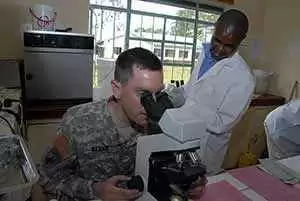Celiac.com 06/15/2012 - Diagnosing celiac disease can be challenging for doctors if a patient has already started a gluten-free diet, and/or when test results are inconsistent.
 A research team set out to evaluate the in vitro gliadin challenge in such patients. Researchers included Raffaella Tortora MD; Ilaria Russo PhD; Giovanni D De Palma MD; Alessandro Luciani PhD; Antonio Rispo MD; Fabiana Zingone MD; Paola Iovino MD; Pietro Capone MD; and Carolina Ciacci MD
A research team set out to evaluate the in vitro gliadin challenge in such patients. Researchers included Raffaella Tortora MD; Ilaria Russo PhD; Giovanni D De Palma MD; Alessandro Luciani PhD; Antonio Rispo MD; Fabiana Zingone MD; Paola Iovino MD; Pietro Capone MD; and Carolina Ciacci MD
Celiac.com Sponsor (A12):
They are variously affiliated with the Department of Clinical and Experimental Medicine at Federico II University of Naples in Naples, Italy; the Department of Surgery, Endoscopy Unit at Federico II University of Naples in Naples, Italy; the Institute of Pediatrics at the University of Foggia in Foggia, Italy; and the University of Salerno, School of Medicine, Gastroenterology at Campus di Baronissi in Salerno, Italy.
For their study, the team included 57 patients without celiac disease (negative controls), 166 patients with untreated celiac disease and 55 patients with celiac disease following a gluten-free diet (positive controls), and 59 patients with difficult diagnosis.
The team conducted duodenal biopsies on all patients which provided the data for diagnosing the celiac disease and for the in vitro evaluation of the gliadin-induced mucosal expression of seven inflammatory markers: PY99, ICAM-1 (intercellular cell adhesion molecule), HLA-DR, CD3, CD25, CD69, and transglutaminase 2 IgA.
As part of their diagnostic work-up for celiac disease, the team included a test for specific serum antibodies. The team asked patients in the difficult diagnosis group to discontinue their gluten-free diets to that they could test for antibodies under untreated conditions.
To maintain statistical accuracy, the team used the area under the receptor-operated curve (ROC) to analyze the results.
They found that HLA-DR was most accurate in diagnosing celiac disease on negative controls and positive controls, excluding patients on a gluten-free diet (area under ROC=0.99). Test accuracy did not increase by combining HLA-DR data with data of other markers.
The results were similar in the 39 patients of the difficult diagnosis group who underwent the test for celiac disease-specific antibodies under untreated conditions.
Finally, the results showed that in vitro response of mucosal HLA-DR to gliadin is an accurate tool for diagnosing celiac disease, including in patients with difficult diagnosis.
Source:
- Open Original Shared Link






Recommended Comments
There are no comments to display.